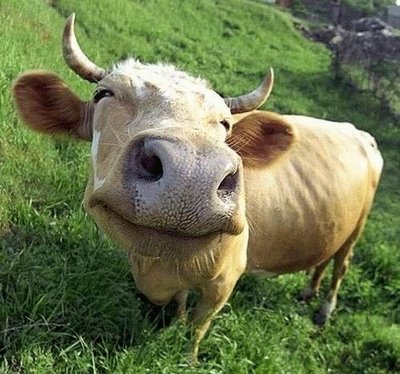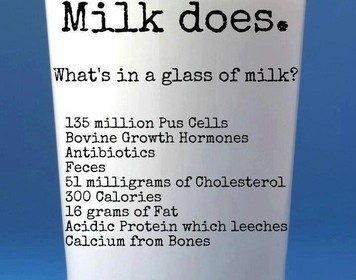No animal drinks milk once weaned?
Per leggere questo articolo ti servono: 3minuti
How many times have you heard it said? If you went to listen to a lecture by a "modern" nutritionist he probably began his discussion in this way. And probably you nodded along with the others, convinced of the validity of the supreme empirical evidence that milk and dairy products are unnatural and therefore detrimental to the body.
But is it true ??
Or better yet, seeing as it is clearly not true, how come that that you believed it right away?
Yet we know well that just to leave around a bowl of milk, even if it be vile pasteurized, homogenized, skim – possibly even expired, that the first wild animal that passes is likely to lap it up without scruples. Be it a bird, a rat or a snake.
Didn’t think about that, eh? Maybe because you could not wait to have a reason to follow the latest trend in natural food. As for gluten, you eliminated it a long time ago but, apart from feeling better in the first few weeks, you’re still dissatisfied so now you’re back searching for a group of foods that deprive not only your body but your spirits as well ??
The argument clearly belongs to a different field, that of the psychology of diets, that are forever promoting the deprivation of one food or another rather than to consider the possibility of choosing instead one of a higher quality.
But, returning to the milk, it is true that it makes us sick?
Yes! The milk that is found commercially sure does.
But:
If you drink poisoned water and become sick, is it to say that you're allergic to water?
Don’t think so…much more of a probability that the added poisons contained inside were the source of your illness (duh !?).
So let’s take a look at which could be the poisons dissolved in your good fresh milk from supermarket shelves, which hold the best intentions for your health dear to their hearts..
- Residuals of antibiotics and antimicrobial growth hormones
Unfortunately, the cows are raised intensively and are “helped” on a daily basis to stay “healthy” and produce milk with these products, which are added directly to their “good” food for convenience.
Why?
You try to live in an overcrowded warehouse, eating foods that you can not digest (primarily corn and soybeans; the stomach of cows are made to digest grasses, not grains) together with companions who can’t hold poop and pee, and see if you don’t become sick.
- Pus
You read that right, pus. Cows naturally produce milk from the postpartum period up until the weaning of the grown calf , however commercial dairy cows are kept constantly in “production” by means of a little help (resulting of man’s greed) and so produce up to 10 times the milk they would otherwise in nature. If the law prohibits the use of growth promoting hormones then the wise producer instead intervenes with other “supplements” which the law allows. The udders become inflamed and produce pus, so much pus that the milk must be filtered so as to contain “only” the maximum allowed by law.
Speaking of, the European Directive 92 / 46CEE states that a liter of milk can not contain more than 400 million “somatic cells” (scientific name of pus), and, even worse, in the United States it’s allowed up to 750 million cells per liter. But don’t worry, in your cup of milk at most there is only “few” drops or so.
- Various denaturations
The milk as it comes out of the cow of course is not good for the consumer either, and should be homogenized, otherwise the cream will separate after a night in the fridge (oh!). It must be pasteurized or else there are too many bacteria, not important that they burn the enzymes that would have helped you to digest them in the first place. Maybe it ought to be partially or completely skimmed, doesn’t matter if your body no longer recognizes the food thus transformed and so cannot produce the gastric juices necessary to digest it.
So, what to do? We’ll all go vegan and eat tofu and drink soy milk!
At least until the next post when I will tell you about the latter.
Or otherwise buy, seek, demand milk originating from free animals, whom forage in pastures, which had no need of antibiotics and that produce only milk as they would in nature.
Sure it costs more, but what of the cost of disease? Or the sadness of eating processed foods masquerading as the healthy alternative?
GG



